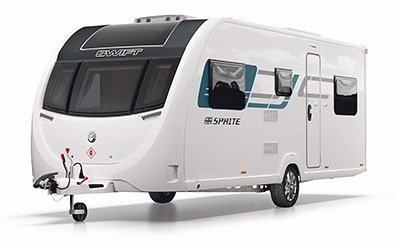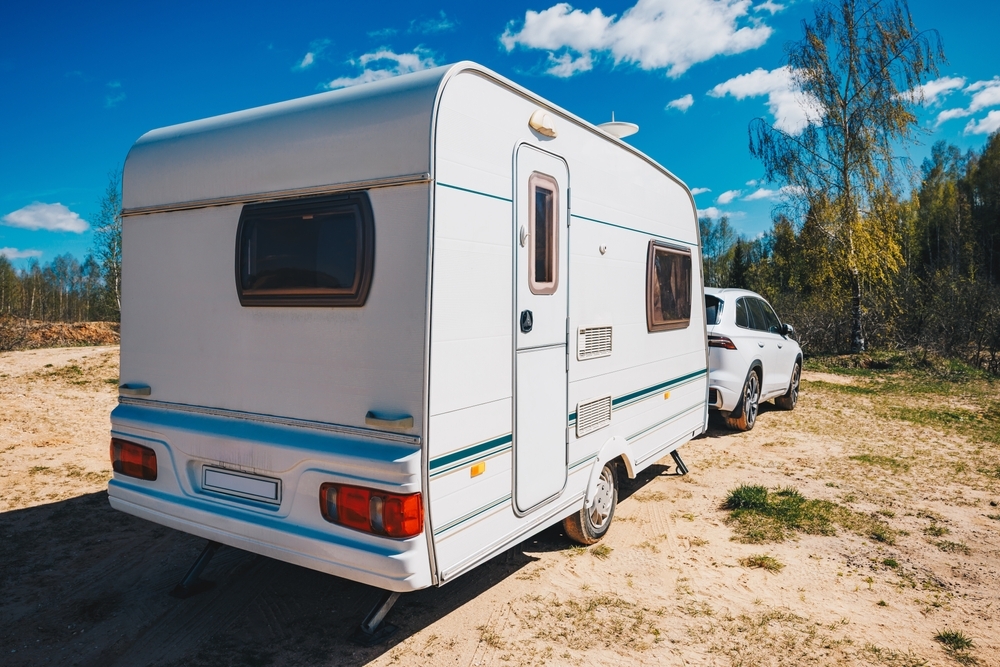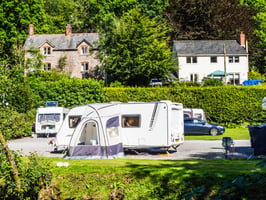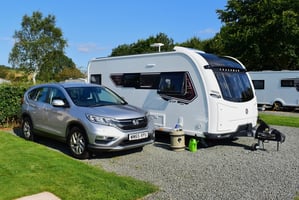How to keep your caravan’s fridge in tip-top condition
Buying a caravan is a big investment, and whether you’re looking for your first one or upgrading to something bigger, it’s really important to make sure you’re getting exactly what you think you are getting. Like cars, caravans also have some unique identifiers and records, and these can help reveal whether the caravan is genuine - and, importantly, not stolen.
Here’s a guide to what you need to know when checking a caravan’s history when in the UK.
Check the VIN/CRiS number
Every caravan built after 1992 should have a Vehicle Identification Number (VIN), known for caravans as the CRiS number (Caravan Registration and Identification Scheme). This number is unique to each caravan and is the key to confirming its identity.
You’ll usually find the number:
• Etched onto the caravan windows
• Stamped onto the chassis
• Displayed on a small plate near the entrance door
Make sure the number matches across all these locations. If there are discrepancies, missing etchings or signs of tampering, that could be a big red flag.
Caravans built before 1992 are a little more tricky, but you can often use the chassis maker’s serial number to at least identify the age of the caravan.

Match the CRiS with the paperwork
The CRiS number on the caravan should match the details provided in the paperwork, such as the CRiS registration documents. CRiS is the national register for UK caravans, and a genuine seller should usually be able to show you proof of registration if they’ve been through the process.
Here are the main features of CRiS:
Ownership tracking
Like a car's V5 logbook, CRiS keeps a record of caravan ownership, helping to establish proof of legal ownership.
Theft prevention
Registered caravans have their unique 17-digit number, often etched onto windows and the chassis, making them easier to trace if they are stolen.
History checks
Prospective buyers can run a CRiS check to verify if a caravan has been stolen, written off or is subject to outstanding finance - which is similar to how the police use their database to investigate issues, too.
Security markings
New caravans come with CRiS marking, including hidden microdots and VIN etching for added security.
In terms of the paperwork, if the seller doesn’t have any documents, or if the numbers don’t match up, be cautious. It could mean the caravan is stolen, has been cloned, or simply isn’t what the seller claims it to be. Not all caravans will be registered to the owner, and yet that doesn't mean that it isn't worth buying - just make sure to do your due diligence in terms of establishing the caravan's overall history.

Carrying out your CRiS check
Much like a car HPI check, you can run a caravan through an official CRiS check online here. For a small fee, this will tell you:
• Whether the caravan has been reported stolen
• If it has outstanding finance
• Whether it’s been written off or damaged
• The registered keeper’s details
This is one of the quickest and most reliable ways to avoid scams or costly mistakes, so it’s well worth doing before you hand over any money.
Inspect the caravan yourself
While the paperwork and online checks are important, there’s no substitute for a thorough physical inspection as well. As well as looking at the interior and seeing if it’s a good fit for your needs, it’s so important to look at the paperwork and security markings too, to determine what you can in person about its history.
When you view the caravan:
• Double-check the CRiS numbers match up
• Look for signs of tampering around the chassis or window etchings
• Ask the seller about its service history and maintenance records
A genuine seller will usually have a file of paperwork, including receipts, manuals and service stamps. A lack of documentation isn’t always a deal-breaker, but it should make you ask a few more questions.

Ask about ownership
Don’t be afraid to ask the seller how long they’ve owned the caravan and why they’re selling it. Here, you might also want to ask to see a receipt of purchase. If they seem evasive, can’t answer basic questions or are reluctant to let you carry out your checks, you might have to consider walking away.
Buying from a dealer often provides more security, as they’ll typically perform the checks we’ve mentioned above themselves and may even offer a warranty. However, if you’re buying privately, it’s entirely down to you to do the legwork.
Checking a caravan’s history might feel like an inconvenience, but it could save you from some serious headaches down the line. By confirming the number, matching it to the CRiS registration, running an online check and inspecting the caravan and paperwork yourself, you’ll have peace of mind that you know enough about a caravan’s history in order to make an informed decision.
Taking the time to do these checks ensures your new caravan adventure starts on the right note - with confidence, security - and no nasty surprises!







